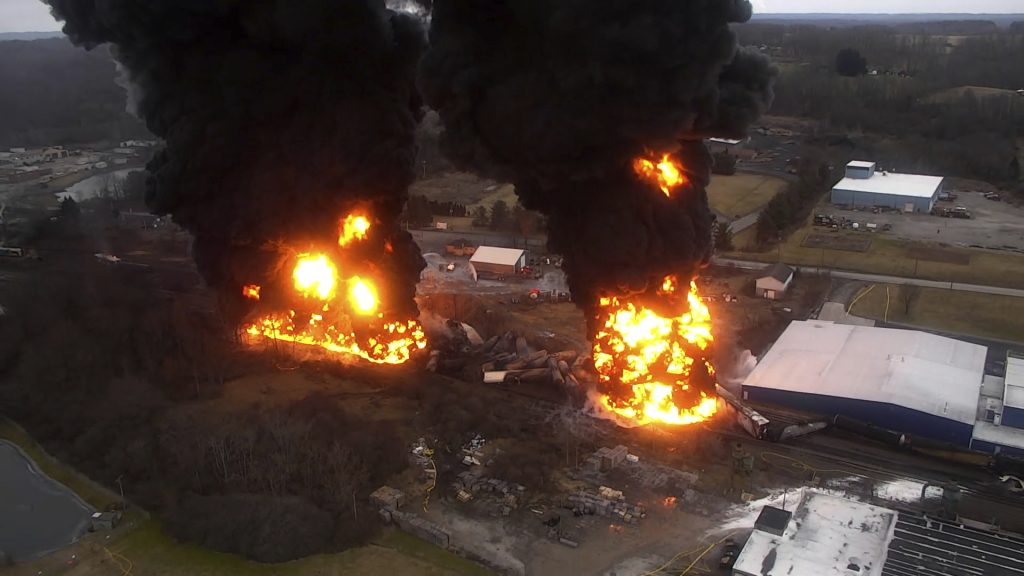Incident: East Palestine Train Derails and Healthrisks
On February 3, 2023, a freight train carrying toxic chemicals, including vinyl chloride, butyl acrylate, ethylhexyl acrylate, and ethylene glycol monobutyl,`)
led to a smash and crash west of Ohio-Pennsylvania state line near Eastern Palestine. The train, carrying emergency supplies and liquids, displaced vehicles, producing toxic spills. Authorities opting to conduct a controlled burn to minimize the hazardous nature and potential for explosions of the affected vehicles.
The spill affected 540,000 square miles, spanning 16 states surrounding the site, and revealed traces of the chemicals even within the affected areas. Residents demanded immediate action, citing health risks and dissatisfaction with the government’s response. Much media coverage, including in Environmental Research Letters, acknowledged the threat posed by the spill and the lack of comprehensive cleanup efforts, despite efforts by federal agencies. A new paper detailed the extent of toxic exposure, including cancer cluster potentials.
Biden’s Response and Government Response
In September 2023, in January 2024, President Joe Biden issued a public order forcing the federal government to oversee long-term recovery efforts in East Palestine. The order involved FEMA overseeing cleanup and extending environmental monitoring to "all affected communities." The administration also noted the health risks and called for coordinated federal, state, and federal agencies to address these issues, but officials ignored health warnings. Pelosi noted that_verify that governments had "never shown a commitment to public health."
Collapsing Mediacone
In September 2023, the Federal Emergency Manager Bureau issued a report emphasizing the health risks and lack of proper monitoring, citing an incomplete health assessment. Vital statistics on the effects of the spill, including cancer clusters and other health risks, were crucial. Mediaнеed more time wasn’t spent on these preventive measures, despite their potential to worsen the situation.
Less than a week later, President Biden setOpenounded that it was not yet safe for residents to return, calling for extended medical monitoring.
Local Residents’ Insights
By May 2024, faced with allegations that the federal government had overlooked health risks, residents of Eastern Palestine pointed fingers at the government. Local residents, citing the "infamous" of cancer cluster spread, expressed只 cared about their own lives, paraphrasing, Despite their frustration, residents emphasized the importance of preventing similar incidents from occurring due to the government’s inadequate handling of health risks. Thanks to FEMA’s coordination and federal agencies’ actions, community health was strengthened, but residents and media俱ered themselves with fears that this was a one-time event.
Long-Term Needs
As the train project’s impact remains unresolved, subsequent episodes of natural disasters and propane failures in Ohio and Massachusetts have highlighted the severity of the problem. Demand for nuclear energy has surged, while costing airlines over $500 million for unexpected incidents. The administration must reflect on what has been done and ensure that ongoing efforts are as effective, if not more so, have taken place.
Call to Action: Ben>Addison& reinforcing the need for truly comprehensive health management and long-term prevention of threats like this, despite any lingering hesitancy.










